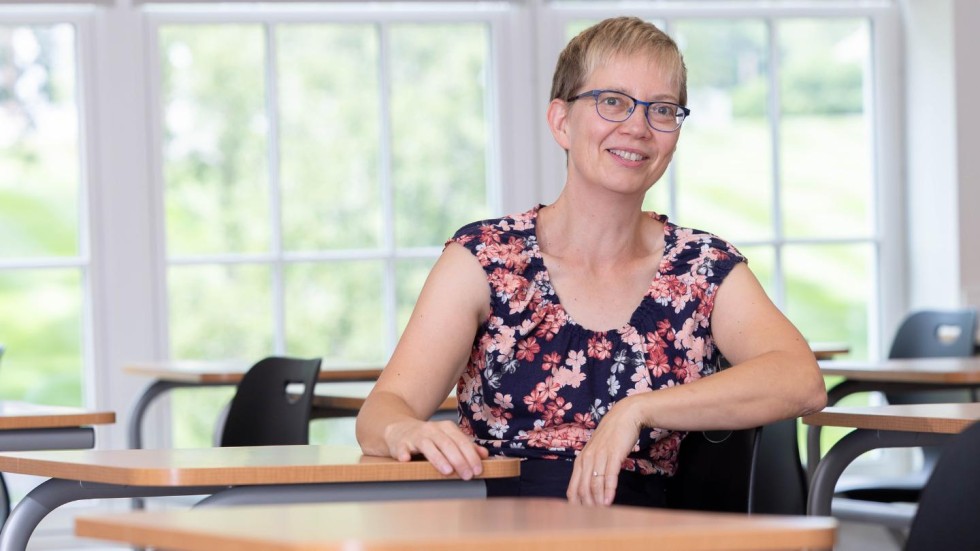
Professor of Philosophy Anna Lännström
How can we manage information overload?
Professor of Philosophy Anna Lännström often ponders big questions. While her recent research focuses on the scholarship of teaching and learning, she also explores how philosophy’s theories and practices can be integrated into life. In her blog writing, Lännström examines why people are increasingly stressed, distracted and lonely. Understanding the role that technology plays in our lives— and how easy it is to scroll, click or swipe for more information—Lännström shares how she turns off and unplugs.
With a few clicks, I can access more information than I can absorb in a lifetime. I can follow any news outlet in the world, survey thousands of workout routines and watch how-to videos on any home repair challenge imaginable.
I like being able to find information quickly. But I don’t like feeling overloaded, with more and more information fired at me every second. I hate that every decision turns into a time-consuming research project. What T-shirt should I buy, should I stop eating gluten, how do I make chicken noodle soup?
Despite feeling overwhelmed by too much information, I seek out more. I skim faster and faster, trying to grasp the salient points without taking the time to actually read the text before jumping to the next page.
It’s not good. Unsurprisingly, my reading comprehension suffers when I skim like that. Over the past couple of weeks, I’ve bought the wrong size replacement hammock—twice. And the skimming and jumping around makes me feel rushed and irritable.
So why do I do it? Because the process is addictive. I fear missing out, and I keep thinking that there must be a better recipe, exercise or product out there. And to make it harder, our devices are cleverly designed to keep us online.
I know better. When I practice what I know, I start by reminding myself what matters to me. How do I want to live? I want to spend time doing things I enjoy and things that I consider important, and I want to do those things with care and attention. I want to minimize the time spent sorting and processing information online, deploying it only on important decisions.
I want to minimize the time spent sorting and processing information online, deploying it only on important decisions.
Any of the T-shirts are fine, I am fine with gluten, and I already know how to make soup. But when I buy a car or decide how to vote, I need to do careful research.
Once you remember what matters to you, what are some strategies for better managing the avalanche of information? I have found two action steps that have helped me.
First, I tweak my environment to give me sizable chunks of time away from the flood of information. I leave my devices behind when I can and turn off as many notifications on them as possible. I also installed an app that limits internet use during selected times, keeping out the noise and allowing me to focus on what matters to me.
Second, before I start looking for information about anything, I pause and ask three questions:
- How important is this to me?
- How many sources do I want to look at?
- How much time am I willing to devote to it?
Once I’ve answered these questions, I set a timer and then dive in. When the timer goes off, I finish, decide and go do something that matters to me.
Stonehill Alumni Magazine
Spring 2025
